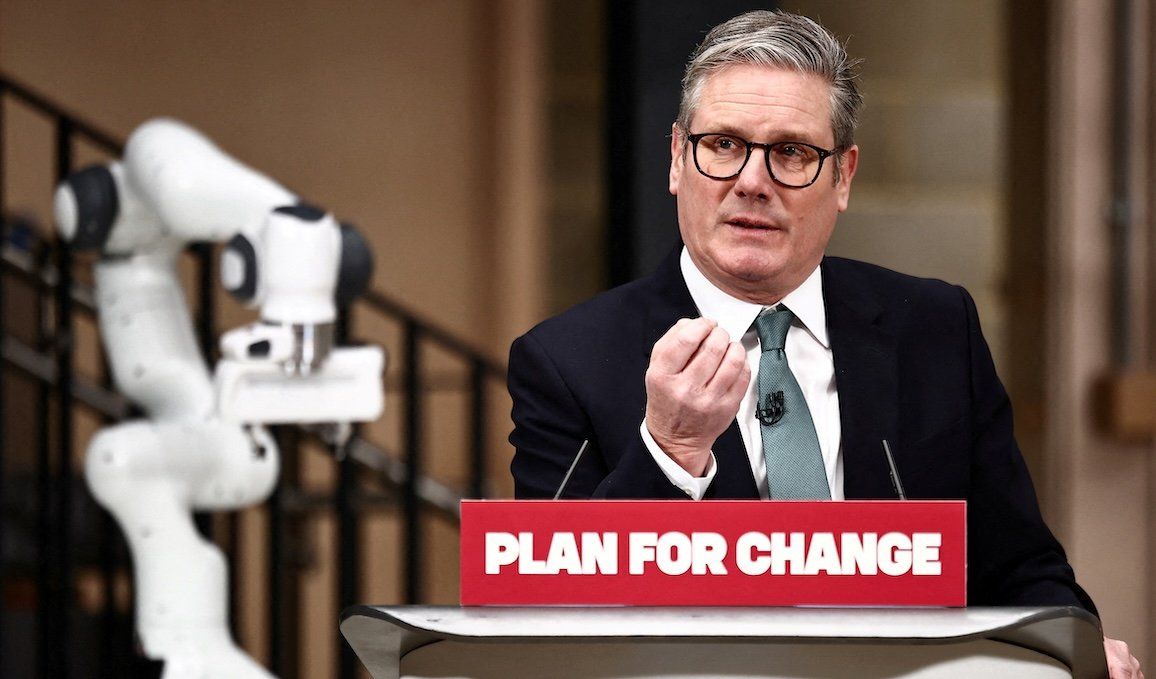Britain's Prime Minister Keir Starmer delivers a speech during a visit to the Manufacturing Futures Lab at UCL in London, on Jan. 13, 2025, as he prepares to launch a plan to harness AI to spur growth and efficiency in the country.
On Monday, the British government announced the AI Opportunities Action Plan, Prime Minister Keir Starmer’s economic and technological development plan for artificial intelligence. Starmer’s goals include building a homegrown challenger to OpenAI, building data centers nationwide, and exploring renewable energy sources — including nuclear energy — to power the data centers.
Last year, Starmer canceled $1.7 billion of spending commitments meant for computing infrastructure as part of a broader set of budget cuts — nixing the promises made under the prior administration of Rishi Sunak. Starmer is now trying to leave his own mark with a play for “sovereign AI” in the country. “Today’s plan mainlines AI into the veins of this enterprising nation – revolutionizing our public services and putting more money in people’s back pockets,” the government wrote in a press release.
As part of the initiative, three companies — Vantage Data Centres, Nscale, and Kyndryl — committed $17 billion to build data centers, a plan the government says will create 13,250 jobs across the UK and increase compute capacity twentyfold by 2030. The ultimate goal: Starmer’s government wants to make the UK “irresistible” to AI firms.
